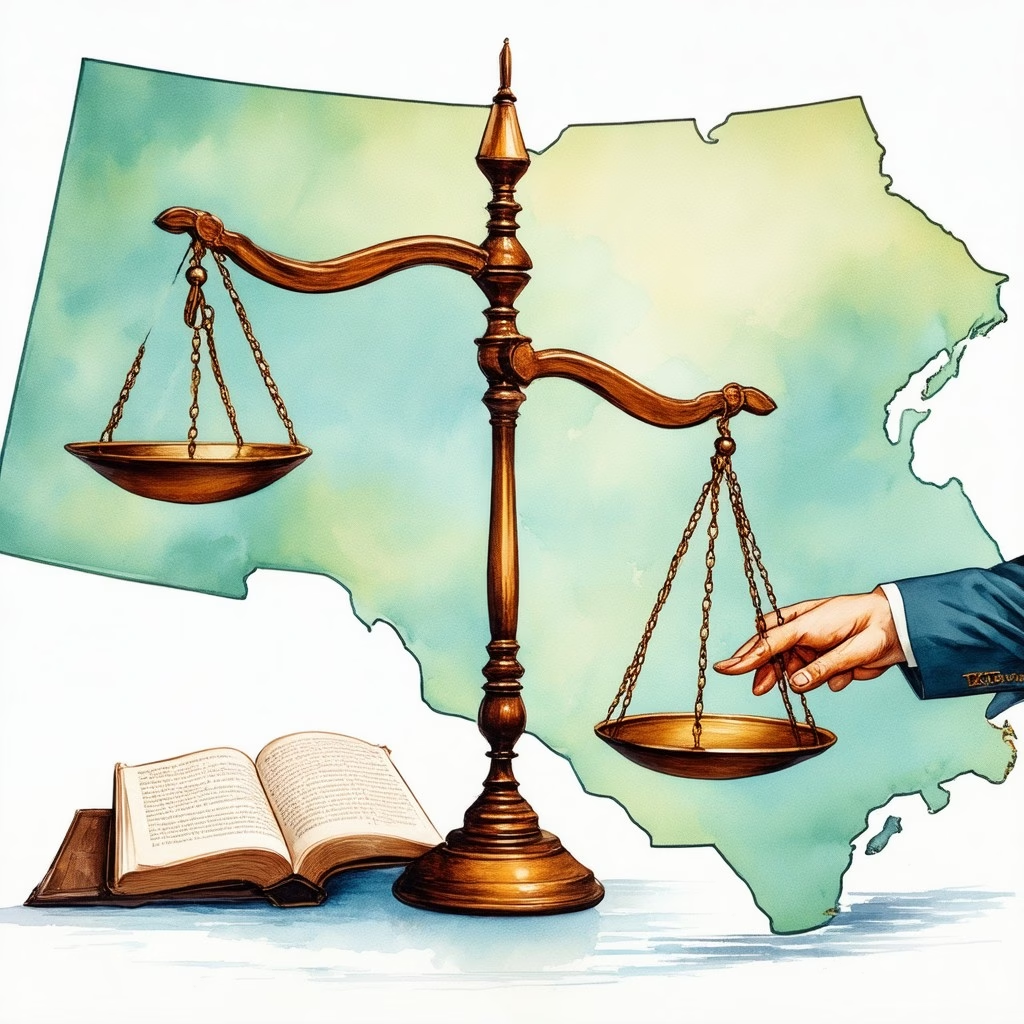Key Takeaways
- Discover how to access free legal lawyers in Massachusetts and North Carolina to navigate legal challenges without financial strain.
- Learn about free attorney services available through legal aid organizations, pro bono programs, and law school clinics.
- Understand the eligibility criteria for free legal services, including income limits and types of legal issues covered.
- Utilize 24/7 free legal advice hotlines for immediate support and guidance on your legal rights.
- Prepare for consultations with free consultation lawyers to maximize the value of your initial legal advice.
- Explore online resources for accessing legal assistance free and detailed information about your rights.
In today’s complex legal landscape, accessing free legal lawyers can be a vital resource for individuals facing legal challenges, especially in states like Massachusetts and North Carolina. This comprehensive guide will illuminate the pathways to obtaining free attorney services and legal aid, ensuring that you understand your rights and options. We will explore essential topics such as how to get a free attorney in Massachusetts, the eligibility criteria for free legal services, and what to expect during a consultation with free consultation lawyers. Additionally, we will delve into the resources available for low-income families seeking legal assistance free of charge, and the importance of utilizing 24/7 free legal advice hotlines. Whether you are looking for free legal advice online or need to consult a lawyer for free, this article will equip you with the knowledge to navigate your legal needs effectively.
How to get a free attorney in Massachusetts?
Understanding Free Legal Services in Massachusetts
To obtain free legal assistance in Massachusetts, consider the following options:
- Legal Aid Organizations: Massachusetts offers various civil legal aid organizations that provide free legal services to eligible individuals. If your annual income is at or below 125% of the federal poverty level, you may qualify for assistance. As of 2025, this threshold is approximately $40,187 for a family of four and $19,562 for an individual. Organizations such as Greater Boston Legal Services and South Coastal Counties Legal Services are key providers.
- Massachusetts Bar Association: The Massachusetts Bar Association offers a Lawyer Referral Service, which can connect you with attorneys who may provide a free initial consultation. This service can help you understand your legal options and determine if you qualify for further assistance.
- Pro Bono Programs: Many law firms and legal professionals in Massachusetts participate in pro bono programs, offering free legal services to those in need. Check with local bar associations for listings of attorneys willing to take on pro bono cases.
- Law School Clinics: Several law schools in Massachusetts, including Boston College Law School and Harvard Law School, have legal clinics where law students provide free legal assistance under the supervision of licensed attorneys. These clinics often focus on specific areas of law, such as family law, immigration, or housing.
- Online Resources: Websites like MassLegalHelp.org provide comprehensive information on legal rights and resources available in Massachusetts. They also offer guidance on how to navigate the legal system and find free legal help.
For more detailed information and resources, you can visit the Massachusetts Legal Assistance website or contact local legal aid offices directly.
Eligibility Criteria for Free Legal Services
Eligibility for free legal services in Massachusetts typically hinges on income and specific legal needs. Here are the primary criteria:
- Income Limits: To qualify for free legal aid, your income must generally be at or below 125% of the federal poverty level. This means that for a family of four, the income limit is approximately $40,187, while for an individual, it is about $19,562.
- Type of Legal Issue: Free legal services are often available for civil matters, including family law, housing disputes, and immigration issues. Criminal cases may not be covered under these programs, so it’s essential to check the specific services offered by each organization.
- Residency Requirements: Applicants must typically be residents of Massachusetts to qualify for state-funded legal aid programs.
- Special Circumstances: Certain groups, such as veterans, seniors, and survivors of domestic violence, may have additional resources available to them, enhancing their access to free legal assistance.
Understanding these eligibility criteria can help you navigate the process of seeking free legal services effectively.

Consulting with Free Legal Lawyers
When seeking legal assistance, many individuals wonder, “Will a lawyer talk to you for free?” The answer is yes; numerous lawyers offer free consultations or legal advice, particularly for initial inquiries. This is an excellent opportunity to consult a lawyer for free and assess your legal situation without financial commitment. For instance, in California, you can access free legal advice by calling 1-800-THE-LAW2, which connects you to a network of attorneys who can provide guidance on various legal issues, including personal injury, family law, and criminal defense.
Additionally, various legal aid organizations and nonprofit groups provide free or low-cost legal services to individuals who qualify based on income or specific legal needs. The Legal Services Corporation (LSC) is a federally funded organization that supports legal aid programs across the United States, ensuring that low-income individuals have access to legal assistance. It’s crucial to clarify the terms of service with the attorney before proceeding, as while initial consultations may be free, subsequent services may incur fees.
Free Consultation Lawyers: What to Expect
When you consult with free consultation lawyers, you can expect a preliminary discussion about your legal issue. This session typically covers:
- An overview of your situation and legal rights.
- Potential strategies for your case.
- Information on whether you qualify for free legal aid or services.
- Clarification of any fees for future services.
During this consultation, it’s essential to be prepared with relevant documents and a clear outline of your questions. This will help the lawyer provide you with the most accurate and helpful legal advice for free.
How to Consult a Lawyer for Free
To consult a lawyer for free, follow these steps:
- Research local legal aid organizations and free legal services in your area.
- Contact them to inquire about free consultation opportunities.
- Gather necessary documentation related to your legal issue.
- Prepare a list of questions to maximize the value of your consultation.
- Schedule your appointment and be punctual.
By taking these steps, you can effectively utilize free legal advice and ensure you receive the support you need. For more resources on accessing legal aid, consider visiting Understanding Legal Aid for comprehensive guidance.
Consulting with Free Legal Lawyers
When facing legal challenges, many individuals wonder, “Will a lawyer talk to you for free?” The answer is yes; there are numerous options available for those seeking free legal advice. Consulting with free legal lawyers can provide you with the guidance needed to navigate your legal issues without incurring costs. Below, we explore what to expect during these consultations and how to effectively consult a lawyer for free.
Free Consultation Lawyers: What to Expect
When you reach out to free consultation lawyers, you can anticipate a few key elements:
- Initial Assessment: The lawyer will typically begin with an assessment of your legal issue. This may involve asking questions about your situation to determine how they can assist you.
- Advice and Guidance: During the consultation, you will receive legal advice for free, which may include potential strategies for your case and information about your rights.
- Next Steps: The lawyer will outline the next steps you should take, whether that involves further legal action, gathering documentation, or connecting you with additional resources.
It’s important to note that while many lawyers offer free consultations, the scope of these consultations may vary. Some may provide a brief overview of your case, while others might delve deeper into specific legal strategies. Always clarify what is included in the free consultation before proceeding.
How to Consult a Lawyer for Free
Consulting a lawyer for free can be straightforward if you know where to look. Here are some effective methods to access free legal advice:
- Legal Aid Organizations: Organizations like Legal Services Corporation provide free legal services to eligible individuals. They can connect you with free legal lawyers in your area.
- Bar Association Referrals: Many state and local bar associations offer referral services that can help you find free consultation lawyers. For instance, the North Carolina Bar Association has resources for connecting with attorneys who may offer free consultations.
- Pro Bono Programs: Check with local legal clinics or law schools that often have pro bono programs where law students provide legal assistance under supervision.
- Online Resources: Websites like Nolo and FindLaw offer valuable information and directories to help you consult a lawyer for free.
By utilizing these resources, you can effectively consult with a lawyer for free and gain the legal assistance you need without financial strain.
Accessing Free Legal Aid in North Carolina
In North Carolina, obtaining free legal assistance is a vital resource for individuals and families facing legal challenges. Understanding how to access these services can significantly impact your ability to navigate the legal system effectively. Here, we will explore the various resources available for free legal services in NC and how they can help you.
Resources for Free Legal Services in NC
North Carolina offers several programs and organizations dedicated to providing free legal aid to those in need. Some key resources include:
- Legal Aid of North Carolina: This organization provides free legal services to low-income individuals and families across the state. They focus on issues such as housing, family law, and public benefits.
- NC Pro Bono Resource Center: This center connects individuals with volunteer attorneys who offer free legal consultations and representation in various legal matters.
- North Carolina Bar Association: They provide a lawyer referral service that can help you find free consultation lawyers in your area.
These resources ensure that individuals can access the legal assistance they need without the burden of high costs, particularly for free legal services tailored for low-income families.
Legal Aid Help for Low-Income Families
For low-income families in North Carolina, legal aid services can be a lifeline. Eligibility for these services typically depends on income level and the nature of the legal issue. Here are some important points to consider:
- Income Eligibility: Most legal aid organizations have specific income guidelines. Generally, individuals and families earning below 125% of the federal poverty level may qualify for free legal assistance.
- Types of Cases Covered: Free legal aid often covers a range of issues, including family law, housing disputes, and consumer protection. Understanding what types of cases are eligible can help you determine if you qualify for assistance.
- Application Process: To apply for free legal aid, you can contact local legal aid offices directly or visit their websites for more information on the application process.
By utilizing these resources, low-income families can secure the legal assistance free they need to navigate their legal challenges effectively.

Understanding Legal Rights to Free Legal Assistance
Access to free legal assistance is a fundamental right for many individuals, particularly those facing criminal charges. The right to a free lawyer is primarily guaranteed under the Sixth Amendment of the United States Constitution, ensuring that individuals charged with a crime have access to legal counsel if they cannot afford one. This section will explore who qualifies for free legal aid and the importance of these services for vulnerable populations.
Who Qualifies for Free Legal Aid?
Eligibility for free legal aid varies based on several factors, including income level and the nature of the legal issue. Here are key points regarding who qualifies:
- Income-Based Eligibility: Many legal aid organizations, such as Legal Services Corporation, provide assistance primarily to low-income families. Generally, individuals must demonstrate financial need, often defined as earning below a certain percentage of the federal poverty level.
- Criminal Cases: Individuals facing criminal charges have the right to request a public defender if they cannot afford a private attorney. This right is crucial for ensuring fair representation in court.
- Civil Cases: While the right to a free lawyer does not extend to civil cases, some nonprofit organizations may offer free legal services for specific issues, such as family law or housing disputes. It’s essential to check with local legal aid offices for available resources.
- State Variations: The availability and quality of free legal services can differ significantly from state to state. Some states have well-established public defender systems, while others may struggle with funding and high caseloads.
The Importance of Free Legal Advice for Vulnerable Populations
Free legal advice plays a critical role in supporting vulnerable populations, ensuring they have access to justice. Here are some reasons why these services are vital:
- Empowerment: Access to legal assistance empowers individuals to understand their rights and navigate complex legal systems, which can be daunting without professional guidance.
- Preventing Injustice: Free legal services help prevent injustices that can arise from a lack of representation, particularly in criminal cases where the stakes are high.
- Community Support: Legal aid organizations often provide additional resources, such as educational workshops and community outreach, to help individuals better understand their legal rights and responsibilities.
- Long-Term Impact: By providing free legal advice, these organizations contribute to the overall health of communities, reducing the likelihood of legal issues escalating into more significant problems.
Accessing Free Legal Aid in North Carolina
In North Carolina, obtaining free legal assistance is crucial for many individuals facing legal challenges. Understanding the resources available can help you navigate the complexities of the legal system without incurring significant costs. Here’s a detailed look at how to access free legal aid in NC.
Resources for Free Legal Services in NC
North Carolina offers various resources for those seeking free legal services. The following organizations provide essential support:
- Legal Aid of North Carolina: This organization provides free legal assistance to low-income individuals across the state. They focus on issues such as housing, family law, and public benefits.
- North Carolina Bar Association: They offer a lawyer referral service and can connect you with free consultation lawyers for initial advice.
- NC Pro Bono Resource Center: This center helps connect individuals with volunteer attorneys who provide free legal advice and representation.
For more information on eligibility and services, you can visit the free legal help guide.
Legal Aid Help for Low-Income Families
Low-income families in North Carolina can access specific programs designed to assist them with legal issues. Eligibility for these programs typically depends on income levels and the nature of the legal problem. Here are some key points to consider:
- Income Eligibility: Most legal aid programs require applicants to meet certain income thresholds. Generally, if your household income is at or below 125% of the federal poverty level, you may qualify for free legal aid.
- Types of Cases Covered: Legal aid services often cover family law, housing disputes, and public benefits. Understanding the scope of services can help you determine if you qualify for assistance.
For further insights on navigating legal aid, check out the legal aid for court guide.
Accessing Free Legal Aid in North Carolina
North Carolina offers various resources for individuals seeking free legal lawyers to assist with their legal needs. Understanding how to access these services can significantly impact low-income families and individuals facing legal challenges. Below, we explore the available resources and how to obtain legal aid in North Carolina.
Resources for Free Legal Services in NC
In North Carolina, several organizations provide free legal services to those who qualify. Key resources include:
- Legal Aid of North Carolina: This organization offers free legal assistance to low-income individuals across the state, focusing on issues such as housing, family law, and public benefits.
- North Carolina Bar Association: They provide a lawyer referral service that can connect you with attorneys who may offer free consultations or reduced fees.
- North Carolina General Assembly: This site offers information on legal rights and resources available to residents.
- North Carolina Courts: The official court website provides resources for self-representation and links to legal aid services.
These organizations are dedicated to ensuring that everyone has access to legal assistance free of charge, particularly for those who cannot afford traditional legal fees.
Legal Aid Help for Low-Income Families
Eligibility for free legal aid in North Carolina typically depends on income and the nature of the legal issue. Here are some key points regarding eligibility:
- Income Limits: Most legal aid organizations require that applicants meet specific income thresholds, usually set at or below 125% of the federal poverty level.
- Type of Legal Issues: Legal aid is often available for civil matters, including family law, housing disputes, and public benefits. Criminal cases typically do not qualify for free legal aid.
- Application Process: Individuals can apply for legal aid through the respective organizations’ websites or by calling their offices directly.
For more detailed information on eligibility and the application process, you can refer to the Understanding Legal Aid guide.




